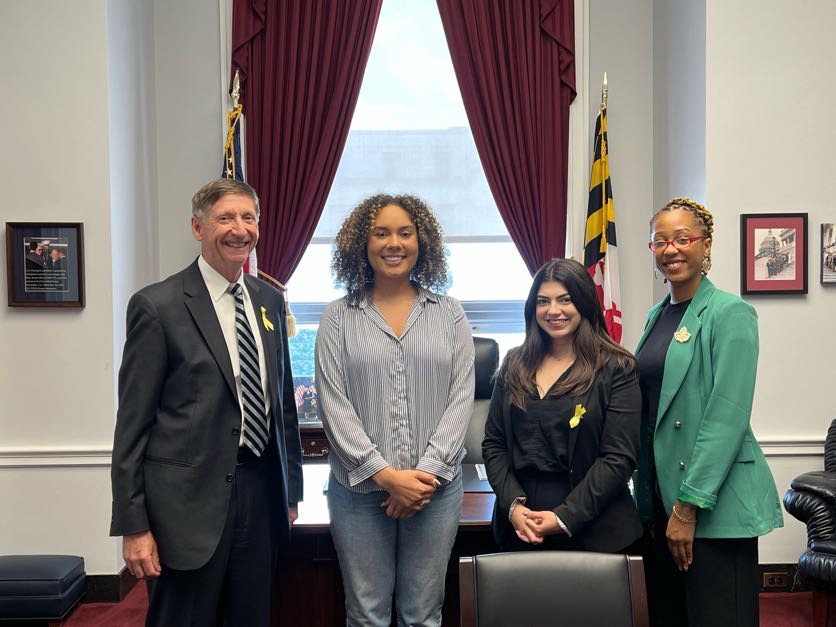On Monday, September 11, as part of the Society for Women’s Health Research (SWHR) Endometriosis Education Working Group two-day roundtable in Washington, D.C., participants hit the halls of Congress to meet with federal policymakers. Their meetings centered on educating policymakers about endometriosis and their message: prioritize endometriosis research funding.
SWHR’s Endometriosis Education Working Group includes interdisciplinary, inter-sector experts, including clinicians, researchers, policy thought leaders, and patients and patient advocates. Working Group members drew on their personal and professional experiences to shed light on the needs and opportunities in endometriosis clinical care, research, policy, and education and awareness.
More than 6.5 million women of reproductive age in the United States have endometriosis. Yet, despite its prevalence, endometriosis has been under-funded and under-researched, so little is understood about its biology and causes. Further, women with endometriosis experience issues with missed and delayed diagnoses; it takes women an average of 6.7 years to receive an accurate diagnosis.
To improve endometriosis outcomes for women across the lifespan, Working Group members made three primary requests of member of Congress:
- Provide at least $51 billion for the National Institutes of Health (NIH) in fiscal year 2024 spending legislation
- Include the Senate’s report language calling for NIH to “advance research to increase earlier detection, develop more accurate diagnostics and for education to inform health care providers and their patients regarding diagnosis and treatment of endometriosis” in fiscal year 2024 appropriations
- Provide dedicated funding for endometriosis research through the Department of Defense’s Congressionally Directed Medical Research Program in future fiscal year funding
These requests, however, are contingent on Congress passing final fiscal year 2024 spending legislation through regular order (i.e., not relying on the short-term stopgap spending measure known as a continuing resolution) and doing so in a timely manner. Therefore, Hill Day attendees also emphasized the need to pass spending bills by the fiscal year deadline and noted the harm of continuing resolutions on the scientific enterprise.
To learn more about endometriosis, its impact on women’s health, and policy opportunities, check out the SWHR fact sheet “Closing the Gaps in Endometriosis Research & Care.”
Are you interested in asking your members of Congress to prioritize endometriosis research and sharing your personal or professional story?
Share with your elected officials the importance of federal investments in endometriosis research. Personalize your message. Whether you or a loved one has experienced endometriosis, whether you are a clinician who has treated endometriosis patients, or whether you recognize the value of increased research funding.
Find your U.S. Representative here and your U.S. Senators here. Below is a sample Tweet that you can use in your outreach:
More than 6 million women of reproductive age in the US have #endometriosis. [@MEMBER], it’s time to give endometriosis the attention it deserves. Please work with your colleagues to prioritize endometriosis research funding in FY24 spending legislation! #SWHRtalksEndometriosis
For questions, please contact SWHR Chief Advocacy Officer Lindsey Horan.
